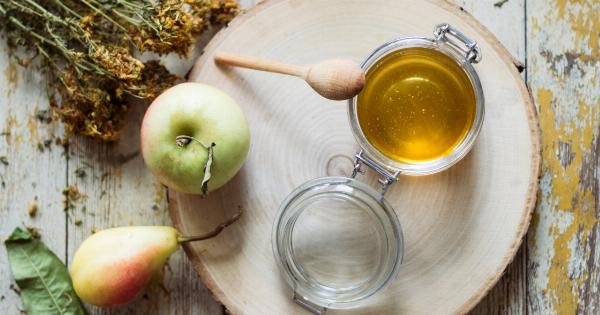Apple cider is a popular drink among health enthusiasts and people who are looking for a natural alternative to processed drinks. However, apple cider can be dangerous if consumed in large quantities or if contaminated.
In this article, we will discuss the dangers of apple cider and what to watch out for to avoid any health risks.
What is Apple Cider?
Apple cider is a type of unfiltered apple juice that is usually cloudy and brown. It is made by crushing apples and extracting the juice, which is then allowed to ferment.
The fermentation process produces alcohol, which is then converted into acetic acid through a second fermentation process. This creates apple cider vinegar, which is used as a natural remedy for various health conditions.
Acidic Nature of Apple Cider
Apple cider is highly acidic, with a pH level of around 4. This acidity can be harmful to teeth enamel and stomach lining.
Drinking apple cider in large quantities or on a regular basis can lead to erosion of teeth enamel, causing tooth sensitivity and decay. Additionally, the acidic nature of apple cider can cause heartburn or acid reflux in people with sensitive stomachs.
Sugar Content in Apple Cider
Apple cider is high in sugars, mainly fructose. Drinking too much apple cider can raise blood sugar levels in diabetic individuals, leading to complications such as nerve damage, kidney damage, or loss of limbs in severe cases.
Consuming apple cider in large quantities can also lead to weight gain, which in turn increases the risk of diabetes, heart disease, and other chronic conditions.
Possible Contamination of Apple Cider
Apple cider can be contaminated with harmful bacteria such as E.coli, Salmonella, or Listeria. These bacteria are commonly found in animal manure, which can be present in the soil where apples are grown.
Additionally, apple cider can be contaminated during the production process if proper hygiene measures are not followed. Drinking contaminated apple cider can cause food poisoning, with symptoms such as nausea, vomiting, diarrhea, fever, and abdominal pain.
Pregnancy and Apple Cider
Apple cider contains a high amount of vitamin C, which is beneficial during pregnancy. However, pregnant women should be cautious when consuming unpasteurized apple cider, as it can carry harmful bacteria that can harm the developing fetus.
Pasteurization is the process of heating apple cider to kill harmful bacteria, and pregnant women are advised to only consume pasteurized apple cider to reduce the risk of foodborne illnesses.
Drug Interactions with Apple Cider
Apple cider can interact with certain medications, such as diuretics, insulin, or blood thinners. Drinking apple cider while on these medications can lead to complications, such as decreased potassium levels, hypoglycemia, or increased bleeding.
It is important to consult with a healthcare provider before consuming apple cider or any other natural remedy if you are taking medication.
Allergic Reactions to Apple Cider
Some people may be allergic to apples or other ingredients that are used to make apple cider, such as cinnamon or cloves.
Symptoms of an allergic reaction can vary from mild to severe and can include hives, itching, swelling, difficulty breathing, or anaphylaxis in severe cases. If you experience any allergic symptoms after consuming apple cider, seek medical attention immediately.
Alternative Options to Apple Cider
If you are concerned about the risks associated with apple cider, there are several alternatives to consider. These include:.
- Organic fruit juices
- Green tea
- Herbal teas
- Coconut water
- Water with lemon or lime juice
These drinks are low in sugar and are less acidic than apple cider, making them a healthier option for daily consumption.
Conclusion
Apple cider is a natural drink that has numerous health benefits. However, it can also be dangerous if consumed in large quantities or if contaminated.
It is important to watch out for the risks associated with apple cider, such as its acidic nature, high sugar content, or possible contamination. If you are concerned about the risks associated with apple cider, there are several healthier alternatives to consider.

























